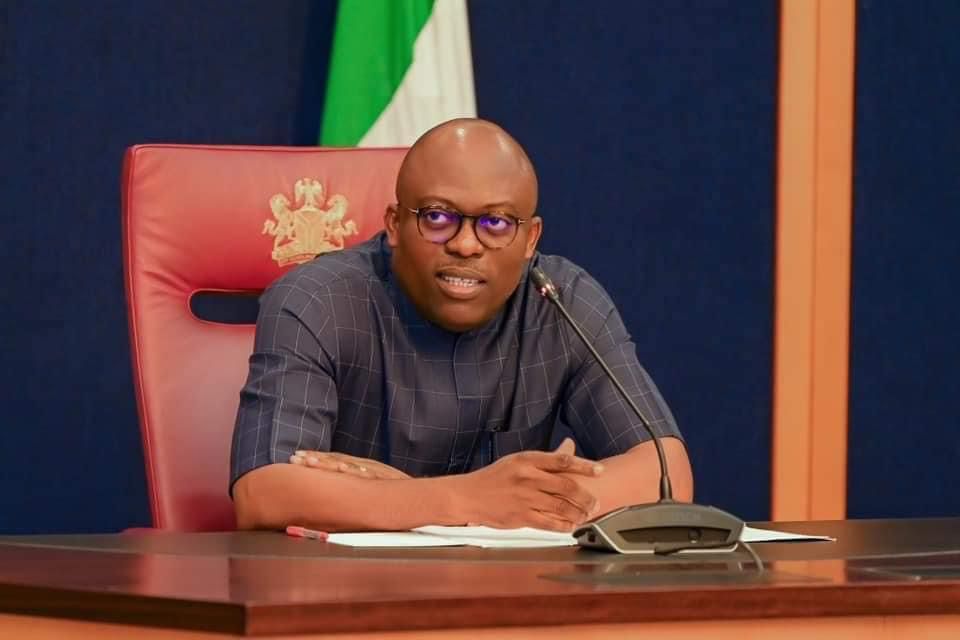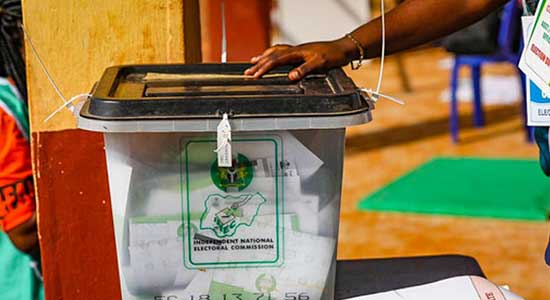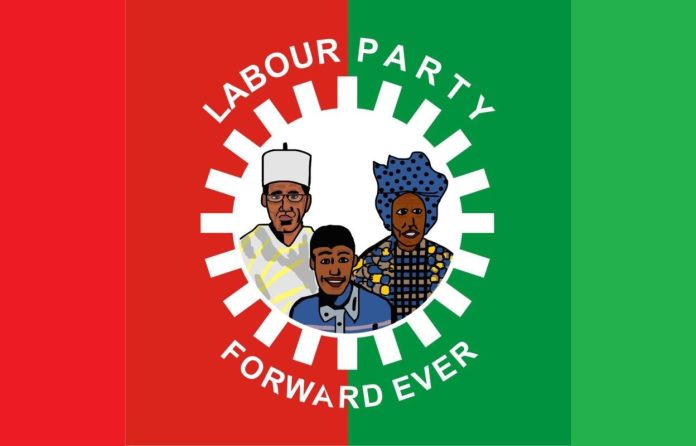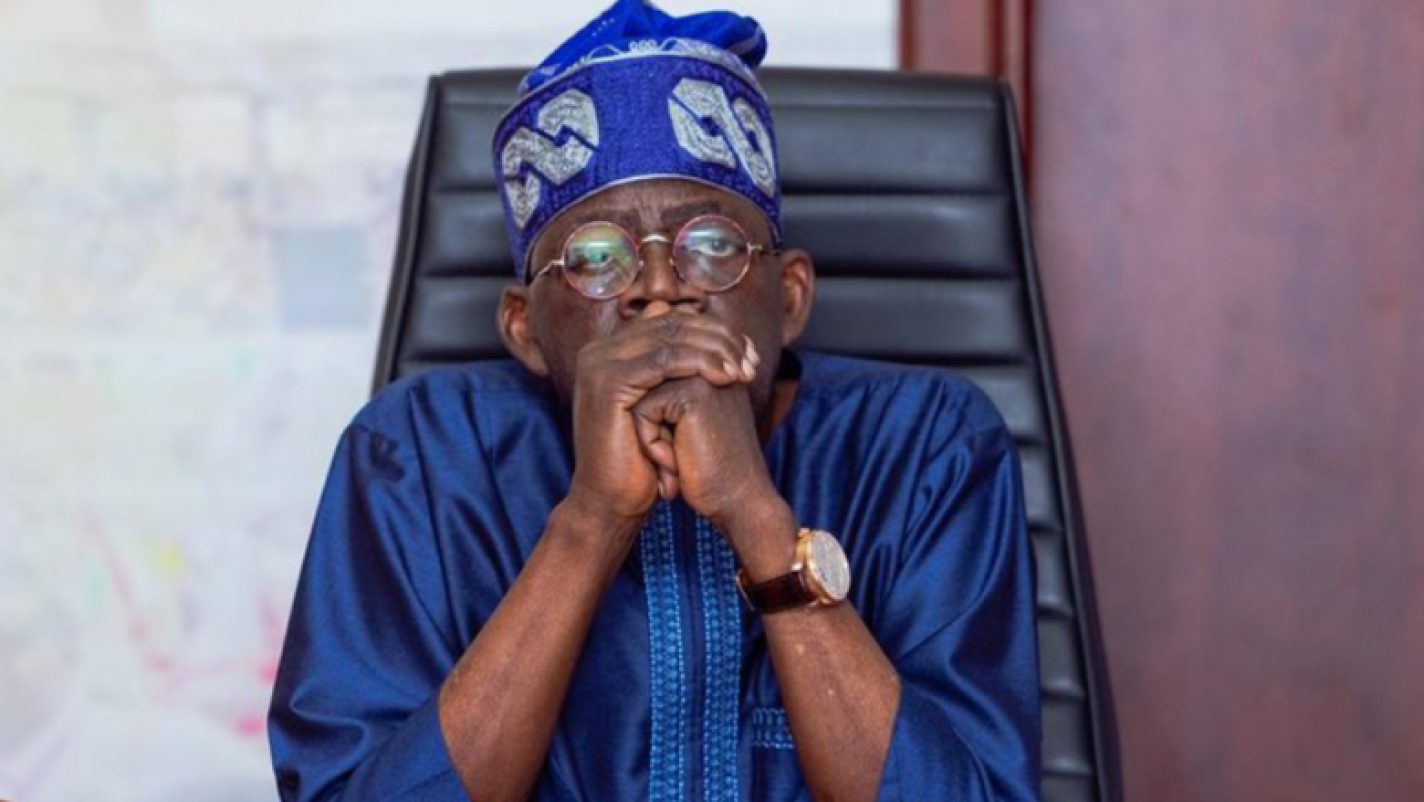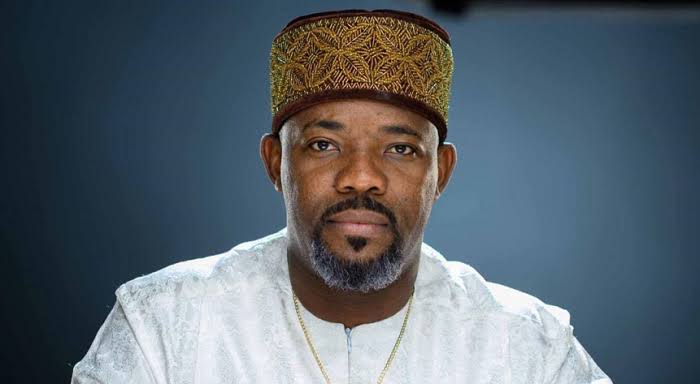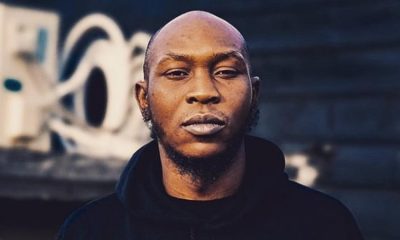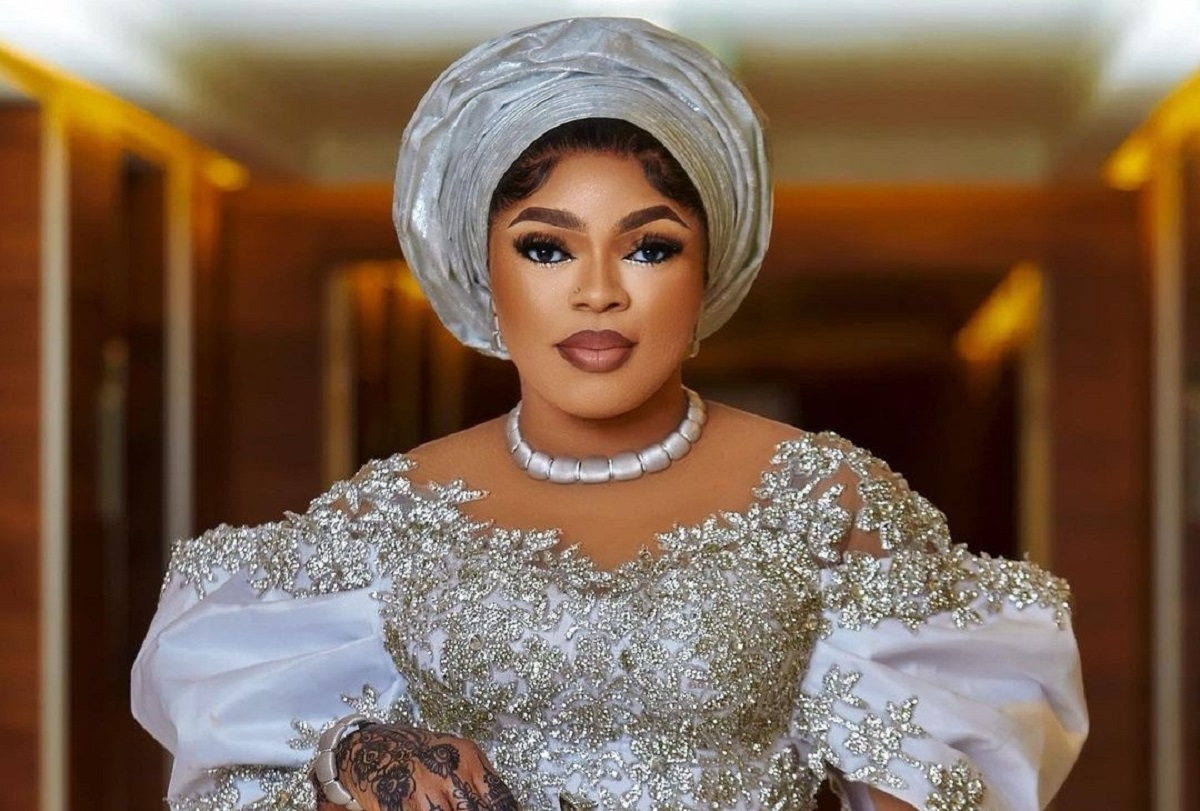The opinions presented in this piece are those of the author and do not necessarily represent InTv Media’s editorial position.Thank you.
The judgment as to whether Nigeria is a religious country or a secular state depends on the prism through which one looks at, particularly, the meaning of religion. If one defines religion to mean a body of rituals that is private to individual between him and a supreme being which he regards as a deity, one is likely to restrict and view religion as a private affair with little or no role in public sphere. If on the other hand, one construe religion to mean “a way of life” covering the entire gamut of peoples’ thoughts and actions, one is likely to give a wider role to religion in public life.

Secularism is the belief that religion and ecclesiastical affairs should not enter into the functions of the state. But one wonders why some State Governors in Nigeria use state funds meant for infrastructural developments in their states to send both Moslems and Christians to perform Pilgrimages to Mecca and Jerusalem respectively. This is automatically against the principle of Secularization. This action is draining state meager resources or economy. The issue of Pilgrimages to Holy lands should be personal affairs of the individual if Nigeria is truly a secular state.
In some states in Nigeria like Borno, they have a ministry name ministry of religious affairs which handles all religious activities in the state which is against the rules of secularism .But if Nigeria is a religious country then why not have the same or similar ministry at the federal level with a minister super heading it activities.
Another point to consider in Nigeria is observing prayers by two recognized religions at the beginning and end of most national event at the federal, state, and even local levels. And the federal government includes religious festivity e.g. Christmas day, Easter, Good Friday, Sallah etc in the country national calendar and declares public holidays to observe it.
A Secular state is the one that will not base its legislation or direct its laws with regards to economy, education, etc to any particular religion. An example of a religious State is Saudi Arabia, while America can to an extent be seen as a Secular State.
In the light of the above two concepts, can we safely say that Nigeria is a Secular State or does its plethora of laws which has some religious connotation qualify it as a religious Country? To start with, let us take a cursory look at some provisions entrenched in our constitution which stands as the grundnorm to which all other laws in this country derive their validity and efficacy. Section 10 of the 1999 constitution (as amended) which many believe makes Nigeria a Secular State provides thus: “the Government of the Federation or of a state shall not adopt any religion as state religion”. Looking at this provision on the surface it may appear to discard any element of religion in a state. But a careful examination of the provision may reveal the true intention of the draftsman what section 10 tends to achieve is a balance of religious tolerance and recognition in such a way that no particular religion is given a level of dominance over another. The provision intends to strike a balance in the eyes of law irrespective of the number of adherents to a particular religion.
Justice Niki Tobi once commented on both the issue of section 10 and secularity of Nigeria when he reportedly said: “There is a general notion that section 10 of the 1999 constitution makes Nigeria a Secular Nation. The word secular etymologically means pertaining to things not spiritual, ecclesiastical or not concerned with religion what section 10 is out to achieve is that Nigeria cannot for example adopt Christianity or Islam as a state religion and that is different from secularism”. Thus from the foregoing, what section 10 tries to rule out is a state of theocracy which is a Government by an established religion. In other words the provision of section 10 is geared towards attaining an equilibrium amongst the different religions in the country. This is further corroborated by the provisions of section 38 and 15 subsection (2) of the 1999 constitution. Section 38 provides that every person shall be entitled to freedom of thought, conscience and religion, including the freedom to change his religion or beliefs, also, as part of the fundamental objectives and directive principles of state Policy contained in chapter II of the constitution. Section 15 (2) provides that national integration shall be actively encouraged; whist discrimination on the ground of Religion shall be prohibited.
Going by the above authorities cited, one may be inclined to say that the constitution greatly encourages and guarantees freedom of religion and religious practices in Nigeria.
However, some may equally argue that the aforementioned authorities only guarantee and protect religion in Nigeria but do not strictly incorporate religion into our legal system and thus, it does not negate the fact that Nigeria is a Secular State. In that line, let us consider certain National symbols which carry some religious undertone and see if we can reconcile it with the definition of Secularism which means state legislations and institutions should be operated devoid of religious elements. First of all, the Nigeria National Pledge which is a symbol of our unity and patriotism ends with the phrase “So Help Me God”. —the effect of the above phrase is that we as a nation submit to God to help us keep our pledge and allegiance. This is a formal incorporation of the concept of religion into our very existence as a nation and such, is not a feature of a secular state. Also, the preamble of the 1999 constitution commences, Thus: “We the people of the Federal Republic of Nigeria: Having firmly and solemnly resolved. To live in unity and Harmony as one indivisible and indissoluble Nation ‘Under God’
Here also the very existence of Nigeria as an indivisible sovereign entity is subjected to the Powers and existence of an extra — terrestrial being, which is God, and that is equally not a feature of a secular state which operates independent of religious principles.
By way of extension certain secondary legislations in Nigeria are equally greatly influenced by the religious beliefs of those areas where such laws apply. A good example of such laws is the Penal Code Act which is an embodiment of the substantive laws that govern criminal liability in Northern Nigeria. The Penal Code Act is greatly motivated by certain Islamic principles which reflect in some of its provisions. Example of such provision is the provision that makes adultery an offence in Northern Nigeria, and also the provision that makes drinking of alcohol an offence and a host of other provisions in like manner. The criminal code Act which governs criminal liability in the Southern Part of the country is equally influenced by the imperial Christian religion and the bye – product of such influence can be seen in some of the provisions of the Act. For example, the Act makes Polygamy that is, marrying more than one wife an offence. The aforementioned provisions were legislated upon on some religious principles which are a clear indication that the instrument of our laws is not devoid of religious principles as opposed to the concept of a Secular State which attempt to flush out religion from its formal settings thereby leaving it only as a private affair with little or no influence in a public setting.
Away from the law, Christian religious studies (CRS) and Islamic religious studies (IRS) are still part of the curriculum of our formal institutions, especially in primary and secondary schools. The fusion of religion and our legal system and its incorporation in our formal institutions robs Nigeria of some of the features of a Secular State. No doubt, Nigeria has not adopted any religion as a state religion but that alone is not enough to qualify it as a Secular State as there is more to the concept of a Secular State than not having a state religion. At best, Nigeria can only be described as a multi-religious state or country.
Wulumba Iliya Jatau
wulumbailiya4@gmail.com
The opinions presented in this piece are those of the author and do not necessarily represent InTv Media’s editorial position.Thank you.
The judgment as to whether Nigeria is a religious country or a secular state depends on the prism through which one looks at, particularly, the meaning of religion. If one defines religion to mean a body of rituals that is private to individual between him and a supreme being which he regards as a deity, one is likely to restrict and view religion as a private affair with little or no role in public sphere. If on the other hand, one construe religion to mean “a way of life” covering the entire gamut of peoples’ thoughts and actions, one is likely to give a wider role to religion in public life.

Secularism is the belief that religion and ecclesiastical affairs should not enter into the functions of the state. But one wonders why some State Governors in Nigeria use state funds meant for infrastructural developments in their states to send both Moslems and Christians to perform Pilgrimages to Mecca and Jerusalem respectively. This is automatically against the principle of Secularization. This action is draining state meager resources or economy. The issue of Pilgrimages to Holy lands should be personal affairs of the individual if Nigeria is truly a secular state.
In some states in Nigeria like Borno, they have a ministry name ministry of religious affairs which handles all religious activities in the state which is against the rules of secularism .But if Nigeria is a religious country then why not have the same or similar ministry at the federal level with a minister super heading it activities.
Another point to consider in Nigeria is observing prayers by two recognized religions at the beginning and end of most national event at the federal, state, and even local levels. And the federal government includes religious festivity e.g. Christmas day, Easter, Good Friday, Sallah etc in the country national calendar and declares public holidays to observe it.
A Secular state is the one that will not base its legislation or direct its laws with regards to economy, education, etc to any particular religion. An example of a religious State is Saudi Arabia, while America can to an extent be seen as a Secular State.
In the light of the above two concepts, can we safely say that Nigeria is a Secular State or does its plethora of laws which has some religious connotation qualify it as a religious Country? To start with, let us take a cursory look at some provisions entrenched in our constitution which stands as the grundnorm to which all other laws in this country derive their validity and efficacy. Section 10 of the 1999 constitution (as amended) which many believe makes Nigeria a Secular State provides thus: “the Government of the Federation or of a state shall not adopt any religion as state religion”. Looking at this provision on the surface it may appear to discard any element of religion in a state. But a careful examination of the provision may reveal the true intention of the draftsman what section 10 tends to achieve is a balance of religious tolerance and recognition in such a way that no particular religion is given a level of dominance over another. The provision intends to strike a balance in the eyes of law irrespective of the number of adherents to a particular religion.
Justice Niki Tobi once commented on both the issue of section 10 and secularity of Nigeria when he reportedly said: “There is a general notion that section 10 of the 1999 constitution makes Nigeria a Secular Nation. The word secular etymologically means pertaining to things not spiritual, ecclesiastical or not concerned with religion what section 10 is out to achieve is that Nigeria cannot for example adopt Christianity or Islam as a state religion and that is different from secularism”. Thus from the foregoing, what section 10 tries to rule out is a state of theocracy which is a Government by an established religion. In other words the provision of section 10 is geared towards attaining an equilibrium amongst the different religions in the country. This is further corroborated by the provisions of section 38 and 15 subsection (2) of the 1999 constitution. Section 38 provides that every person shall be entitled to freedom of thought, conscience and religion, including the freedom to change his religion or beliefs, also, as part of the fundamental objectives and directive principles of state Policy contained in chapter II of the constitution. Section 15 (2) provides that national integration shall be actively encouraged; whist discrimination on the ground of Religion shall be prohibited.
Going by the above authorities cited, one may be inclined to say that the constitution greatly encourages and guarantees freedom of religion and religious practices in Nigeria.
However, some may equally argue that the aforementioned authorities only guarantee and protect religion in Nigeria but do not strictly incorporate religion into our legal system and thus, it does not negate the fact that Nigeria is a Secular State. In that line, let us consider certain National symbols which carry some religious undertone and see if we can reconcile it with the definition of Secularism which means state legislations and institutions should be operated devoid of religious elements. First of all, the Nigeria National Pledge which is a symbol of our unity and patriotism ends with the phrase “So Help Me God”. —the effect of the above phrase is that we as a nation submit to God to help us keep our pledge and allegiance. This is a formal incorporation of the concept of religion into our very existence as a nation and such, is not a feature of a secular state. Also, the preamble of the 1999 constitution commences, Thus: “We the people of the Federal Republic of Nigeria: Having firmly and solemnly resolved. To live in unity and Harmony as one indivisible and indissoluble Nation ‘Under God’
Here also the very existence of Nigeria as an indivisible sovereign entity is subjected to the Powers and existence of an extra — terrestrial being, which is God, and that is equally not a feature of a secular state which operates independent of religious principles.
By way of extension certain secondary legislations in Nigeria are equally greatly influenced by the religious beliefs of those areas where such laws apply. A good example of such laws is the Penal Code Act which is an embodiment of the substantive laws that govern criminal liability in Northern Nigeria. The Penal Code Act is greatly motivated by certain Islamic principles which reflect in some of its provisions. Example of such provision is the provision that makes adultery an offence in Northern Nigeria, and also the provision that makes drinking of alcohol an offence and a host of other provisions in like manner. The criminal code Act which governs criminal liability in the Southern Part of the country is equally influenced by the imperial Christian religion and the bye – product of such influence can be seen in some of the provisions of the Act. For example, the Act makes Polygamy that is, marrying more than one wife an offence. The aforementioned provisions were legislated upon on some religious principles which are a clear indication that the instrument of our laws is not devoid of religious principles as opposed to the concept of a Secular State which attempt to flush out religion from its formal settings thereby leaving it only as a private affair with little or no influence in a public setting.
Away from the law, Christian religious studies (CRS) and Islamic religious studies (IRS) are still part of the curriculum of our formal institutions, especially in primary and secondary schools. The fusion of religion and our legal system and its incorporation in our formal institutions robs Nigeria of some of the features of a Secular State. No doubt, Nigeria has not adopted any religion as a state religion but that alone is not enough to qualify it as a Secular State as there is more to the concept of a Secular State than not having a state religion. At best, Nigeria can only be described as a multi-religious state or country.
Wulumba Iliya Jatau
wulumbailiya4@gmail.com
The opinions presented in this piece are those of the author and do not necessarily represent InTv Media’s editorial position.Thank you.
The judgment as to whether Nigeria is a religious country or a secular state depends on the prism through which one looks at, particularly, the meaning of religion. If one defines religion to mean a body of rituals that is private to individual between him and a supreme being which he regards as a deity, one is likely to restrict and view religion as a private affair with little or no role in public sphere. If on the other hand, one construe religion to mean “a way of life” covering the entire gamut of peoples’ thoughts and actions, one is likely to give a wider role to religion in public life.

Secularism is the belief that religion and ecclesiastical affairs should not enter into the functions of the state. But one wonders why some State Governors in Nigeria use state funds meant for infrastructural developments in their states to send both Moslems and Christians to perform Pilgrimages to Mecca and Jerusalem respectively. This is automatically against the principle of Secularization. This action is draining state meager resources or economy. The issue of Pilgrimages to Holy lands should be personal affairs of the individual if Nigeria is truly a secular state.
In some states in Nigeria like Borno, they have a ministry name ministry of religious affairs which handles all religious activities in the state which is against the rules of secularism .But if Nigeria is a religious country then why not have the same or similar ministry at the federal level with a minister super heading it activities.
Another point to consider in Nigeria is observing prayers by two recognized religions at the beginning and end of most national event at the federal, state, and even local levels. And the federal government includes religious festivity e.g. Christmas day, Easter, Good Friday, Sallah etc in the country national calendar and declares public holidays to observe it.
A Secular state is the one that will not base its legislation or direct its laws with regards to economy, education, etc to any particular religion. An example of a religious State is Saudi Arabia, while America can to an extent be seen as a Secular State.
In the light of the above two concepts, can we safely say that Nigeria is a Secular State or does its plethora of laws which has some religious connotation qualify it as a religious Country? To start with, let us take a cursory look at some provisions entrenched in our constitution which stands as the grundnorm to which all other laws in this country derive their validity and efficacy. Section 10 of the 1999 constitution (as amended) which many believe makes Nigeria a Secular State provides thus: “the Government of the Federation or of a state shall not adopt any religion as state religion”. Looking at this provision on the surface it may appear to discard any element of religion in a state. But a careful examination of the provision may reveal the true intention of the draftsman what section 10 tends to achieve is a balance of religious tolerance and recognition in such a way that no particular religion is given a level of dominance over another. The provision intends to strike a balance in the eyes of law irrespective of the number of adherents to a particular religion.
Justice Niki Tobi once commented on both the issue of section 10 and secularity of Nigeria when he reportedly said: “There is a general notion that section 10 of the 1999 constitution makes Nigeria a Secular Nation. The word secular etymologically means pertaining to things not spiritual, ecclesiastical or not concerned with religion what section 10 is out to achieve is that Nigeria cannot for example adopt Christianity or Islam as a state religion and that is different from secularism”. Thus from the foregoing, what section 10 tries to rule out is a state of theocracy which is a Government by an established religion. In other words the provision of section 10 is geared towards attaining an equilibrium amongst the different religions in the country. This is further corroborated by the provisions of section 38 and 15 subsection (2) of the 1999 constitution. Section 38 provides that every person shall be entitled to freedom of thought, conscience and religion, including the freedom to change his religion or beliefs, also, as part of the fundamental objectives and directive principles of state Policy contained in chapter II of the constitution. Section 15 (2) provides that national integration shall be actively encouraged; whist discrimination on the ground of Religion shall be prohibited.
Going by the above authorities cited, one may be inclined to say that the constitution greatly encourages and guarantees freedom of religion and religious practices in Nigeria.
However, some may equally argue that the aforementioned authorities only guarantee and protect religion in Nigeria but do not strictly incorporate religion into our legal system and thus, it does not negate the fact that Nigeria is a Secular State. In that line, let us consider certain National symbols which carry some religious undertone and see if we can reconcile it with the definition of Secularism which means state legislations and institutions should be operated devoid of religious elements. First of all, the Nigeria National Pledge which is a symbol of our unity and patriotism ends with the phrase “So Help Me God”. —the effect of the above phrase is that we as a nation submit to God to help us keep our pledge and allegiance. This is a formal incorporation of the concept of religion into our very existence as a nation and such, is not a feature of a secular state. Also, the preamble of the 1999 constitution commences, Thus: “We the people of the Federal Republic of Nigeria: Having firmly and solemnly resolved. To live in unity and Harmony as one indivisible and indissoluble Nation ‘Under God’
Here also the very existence of Nigeria as an indivisible sovereign entity is subjected to the Powers and existence of an extra — terrestrial being, which is God, and that is equally not a feature of a secular state which operates independent of religious principles.
By way of extension certain secondary legislations in Nigeria are equally greatly influenced by the religious beliefs of those areas where such laws apply. A good example of such laws is the Penal Code Act which is an embodiment of the substantive laws that govern criminal liability in Northern Nigeria. The Penal Code Act is greatly motivated by certain Islamic principles which reflect in some of its provisions. Example of such provision is the provision that makes adultery an offence in Northern Nigeria, and also the provision that makes drinking of alcohol an offence and a host of other provisions in like manner. The criminal code Act which governs criminal liability in the Southern Part of the country is equally influenced by the imperial Christian religion and the bye – product of such influence can be seen in some of the provisions of the Act. For example, the Act makes Polygamy that is, marrying more than one wife an offence. The aforementioned provisions were legislated upon on some religious principles which are a clear indication that the instrument of our laws is not devoid of religious principles as opposed to the concept of a Secular State which attempt to flush out religion from its formal settings thereby leaving it only as a private affair with little or no influence in a public setting.
Away from the law, Christian religious studies (CRS) and Islamic religious studies (IRS) are still part of the curriculum of our formal institutions, especially in primary and secondary schools. The fusion of religion and our legal system and its incorporation in our formal institutions robs Nigeria of some of the features of a Secular State. No doubt, Nigeria has not adopted any religion as a state religion but that alone is not enough to qualify it as a Secular State as there is more to the concept of a Secular State than not having a state religion. At best, Nigeria can only be described as a multi-religious state or country.
Wulumba Iliya Jatau
wulumbailiya4@gmail.com
The opinions presented in this piece are those of the author and do not necessarily represent InTv Media’s editorial position.Thank you.
The judgment as to whether Nigeria is a religious country or a secular state depends on the prism through which one looks at, particularly, the meaning of religion. If one defines religion to mean a body of rituals that is private to individual between him and a supreme being which he regards as a deity, one is likely to restrict and view religion as a private affair with little or no role in public sphere. If on the other hand, one construe religion to mean “a way of life” covering the entire gamut of peoples’ thoughts and actions, one is likely to give a wider role to religion in public life.

Secularism is the belief that religion and ecclesiastical affairs should not enter into the functions of the state. But one wonders why some State Governors in Nigeria use state funds meant for infrastructural developments in their states to send both Moslems and Christians to perform Pilgrimages to Mecca and Jerusalem respectively. This is automatically against the principle of Secularization. This action is draining state meager resources or economy. The issue of Pilgrimages to Holy lands should be personal affairs of the individual if Nigeria is truly a secular state.
In some states in Nigeria like Borno, they have a ministry name ministry of religious affairs which handles all religious activities in the state which is against the rules of secularism .But if Nigeria is a religious country then why not have the same or similar ministry at the federal level with a minister super heading it activities.
Another point to consider in Nigeria is observing prayers by two recognized religions at the beginning and end of most national event at the federal, state, and even local levels. And the federal government includes religious festivity e.g. Christmas day, Easter, Good Friday, Sallah etc in the country national calendar and declares public holidays to observe it.
A Secular state is the one that will not base its legislation or direct its laws with regards to economy, education, etc to any particular religion. An example of a religious State is Saudi Arabia, while America can to an extent be seen as a Secular State.
In the light of the above two concepts, can we safely say that Nigeria is a Secular State or does its plethora of laws which has some religious connotation qualify it as a religious Country? To start with, let us take a cursory look at some provisions entrenched in our constitution which stands as the grundnorm to which all other laws in this country derive their validity and efficacy. Section 10 of the 1999 constitution (as amended) which many believe makes Nigeria a Secular State provides thus: “the Government of the Federation or of a state shall not adopt any religion as state religion”. Looking at this provision on the surface it may appear to discard any element of religion in a state. But a careful examination of the provision may reveal the true intention of the draftsman what section 10 tends to achieve is a balance of religious tolerance and recognition in such a way that no particular religion is given a level of dominance over another. The provision intends to strike a balance in the eyes of law irrespective of the number of adherents to a particular religion.
Justice Niki Tobi once commented on both the issue of section 10 and secularity of Nigeria when he reportedly said: “There is a general notion that section 10 of the 1999 constitution makes Nigeria a Secular Nation. The word secular etymologically means pertaining to things not spiritual, ecclesiastical or not concerned with religion what section 10 is out to achieve is that Nigeria cannot for example adopt Christianity or Islam as a state religion and that is different from secularism”. Thus from the foregoing, what section 10 tries to rule out is a state of theocracy which is a Government by an established religion. In other words the provision of section 10 is geared towards attaining an equilibrium amongst the different religions in the country. This is further corroborated by the provisions of section 38 and 15 subsection (2) of the 1999 constitution. Section 38 provides that every person shall be entitled to freedom of thought, conscience and religion, including the freedom to change his religion or beliefs, also, as part of the fundamental objectives and directive principles of state Policy contained in chapter II of the constitution. Section 15 (2) provides that national integration shall be actively encouraged; whist discrimination on the ground of Religion shall be prohibited.
Going by the above authorities cited, one may be inclined to say that the constitution greatly encourages and guarantees freedom of religion and religious practices in Nigeria.
However, some may equally argue that the aforementioned authorities only guarantee and protect religion in Nigeria but do not strictly incorporate religion into our legal system and thus, it does not negate the fact that Nigeria is a Secular State. In that line, let us consider certain National symbols which carry some religious undertone and see if we can reconcile it with the definition of Secularism which means state legislations and institutions should be operated devoid of religious elements. First of all, the Nigeria National Pledge which is a symbol of our unity and patriotism ends with the phrase “So Help Me God”. —the effect of the above phrase is that we as a nation submit to God to help us keep our pledge and allegiance. This is a formal incorporation of the concept of religion into our very existence as a nation and such, is not a feature of a secular state. Also, the preamble of the 1999 constitution commences, Thus: “We the people of the Federal Republic of Nigeria: Having firmly and solemnly resolved. To live in unity and Harmony as one indivisible and indissoluble Nation ‘Under God’
Here also the very existence of Nigeria as an indivisible sovereign entity is subjected to the Powers and existence of an extra — terrestrial being, which is God, and that is equally not a feature of a secular state which operates independent of religious principles.
By way of extension certain secondary legislations in Nigeria are equally greatly influenced by the religious beliefs of those areas where such laws apply. A good example of such laws is the Penal Code Act which is an embodiment of the substantive laws that govern criminal liability in Northern Nigeria. The Penal Code Act is greatly motivated by certain Islamic principles which reflect in some of its provisions. Example of such provision is the provision that makes adultery an offence in Northern Nigeria, and also the provision that makes drinking of alcohol an offence and a host of other provisions in like manner. The criminal code Act which governs criminal liability in the Southern Part of the country is equally influenced by the imperial Christian religion and the bye – product of such influence can be seen in some of the provisions of the Act. For example, the Act makes Polygamy that is, marrying more than one wife an offence. The aforementioned provisions were legislated upon on some religious principles which are a clear indication that the instrument of our laws is not devoid of religious principles as opposed to the concept of a Secular State which attempt to flush out religion from its formal settings thereby leaving it only as a private affair with little or no influence in a public setting.
Away from the law, Christian religious studies (CRS) and Islamic religious studies (IRS) are still part of the curriculum of our formal institutions, especially in primary and secondary schools. The fusion of religion and our legal system and its incorporation in our formal institutions robs Nigeria of some of the features of a Secular State. No doubt, Nigeria has not adopted any religion as a state religion but that alone is not enough to qualify it as a Secular State as there is more to the concept of a Secular State than not having a state religion. At best, Nigeria can only be described as a multi-religious state or country.
Wulumba Iliya Jatau
wulumbailiya4@gmail.com









